Author: Paul Amico
Developed in the hop growing region of Alsace, France, by the Comptoir Agricole breeding program, Elixir is an aroma variety that’s said to impart beer with a complex blend of cognac, leather, and tobacco with background hints of sweet fruit.
Alpha: 5 – 7%
Beta: 4.5 – 5.5.%
Cohumulone: 25 – 30% of alpha acids
Total Oil: 1.8 – 2.2 mL/100g
Myrcene: 70 – 75%
Humulene: 1 – 2%
Caryophyllene: 26 – 27%
Farnesene: < 1%
Linalool: < 1%
Geraniol: < 1%
ß-Pinene: unknown
Parentage: unknown
Prior to recently picking up a bag of 2020 Elixir hops, I admittedly had never heard of this French variety and found its description to be rather interesting. Always curious to learn more about new ingredients, I was excited to see what blind tasters would think of a Pale Ale hopped solely with Elixir.
| MAKING THE BEER |
I went with our standard Hop Chronicles Pale Ale recipe for this batch, making adjustments to the kettle hop to ensure adequate bitterness.
Elixir Pale Ale
Recipe Details
| Batch Size | Boil Time | IBU | SRM | Est. OG | Est. FG | ABV |
|---|---|---|---|---|---|---|
| 5.5 gal | 60 min | 35.2 | 4.5 SRM | 1.056 | 1.013 | 5.64 % |
| Actuals | 1.056 | 1.013 | 5.64 % | |||
Fermentables
| Name | Amount | % |
|---|---|---|
| Pelton: Pilsner-style Barley Malt | 10 lbs | 83.33 |
| Vanora: Vienna-style Barley Malt | 2 lbs | 16.67 |
Hops
| Name | Amount | Time | Use | Form | Alpha % |
|---|---|---|---|---|---|
| Elixir | 20 g | 60 min | First Wort | Pellet | 5.1 |
| Elixir | 26 g | 30 min | Boil | Pellet | 5.1 |
| Elixir | 36 g | 15 min | Boil | Pellet | 5.1 |
| Elixir | 56 g | 2 min | Boil | Pellet | 5.1 |
| Elixir | 56 g | 4 days | Dry Hop | Pellet | 5.1 |
Yeast
| Name | Lab | Attenuation | Temperature |
|---|---|---|---|
| Flagship (A07) | Imperial Yeast | 77% | 32°F - 32°F |
Notes
| Water Profile: Ca 92 | Mg 1 | Na 10 | SO4 153 | Cl 50 |
Download
| Download this recipe's BeerXML file |
I started off my brew day by collecting the full volume of filtered water, which I adjusted to my desired profile.
After flipping the switch on my controller to heat it up, I weighed out and milled the grain.
When the water was properly heated, I incorporated the grains and set the controller to maintain my desired mash temperature of 152°F/67°C before preparing the kettle hop additions.
Once the 60 minute mash rest was complete, I removed the grains and proceeded to boil for 60 minutes, adding hops at the times stated in the recipe. When the boil was complete, I used my CFC to chill the wort during transfer to a sanitized fermenter.
A refractometer reading showed the wort was at my target OG.
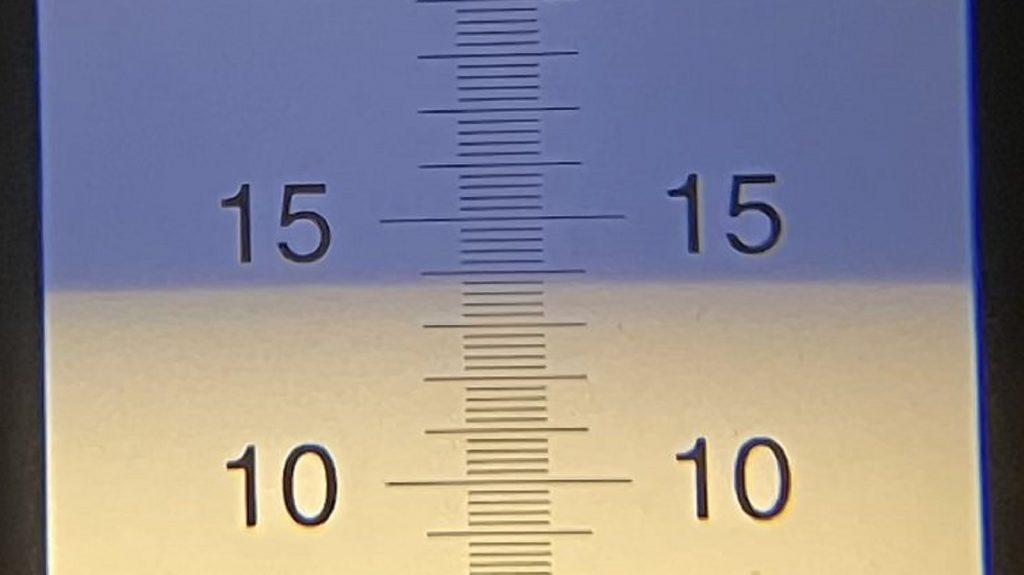
Next, I direct pitched a single pouch of Imperial Yeast A07 Flagship into the wort.
The beer was left to ferment at 66°F/19°C for 2 weeks before I took a hydrometer measurement confirming FG was reached.
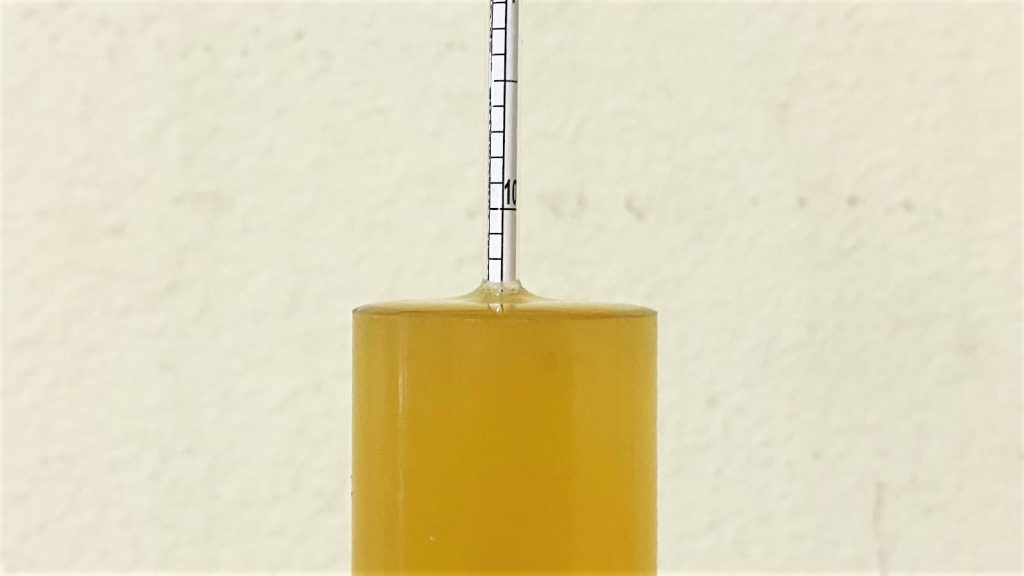
With fermentation complete, I transferred the beer to a CO2 purged keg.
The filled keg was placed in my kegerator and burst carbonated overnight before I reduced the gas to serving pressure. After 2 weeks of conditioning, I began serving it to blind tasters.
| METHOD |
Participants were instructed to focus only on the aromatic qualities of the beer before evaluating the flavor. For each aroma and flavor descriptor, tasters were asked to write-in the perceived strength of that particular characteristic on a 0-9 scale where a rating of 0 meant they did not perceive the character at all and a 9 rating meant the character was extremely strong. Once the data was collected, the average rating of each aroma and flavor descriptor was compiled and analyzed.
| RESULTS |
A total of 17 people participated in the evaluation of this beer, all blind to the hop variety used until after they completed the survey. The average aroma and flavor ratings for each descriptor were plotted on a radar graph.
Average Ratings of Aroma and Flavor Perceptions
The 3 characteristics endorsed as being most prominent by participants:
| Aroma | Flavor |
| Citrus | Tropical Fruit |
| Tropical Fruit | Citrus |
| Apple/Pear | Apple/Pear |
The 3 characteristics endorsed as being least prominent by participants:
| Aroma | Flavor |
| Onion/Garlic | Onion/Garlic |
| Dank/Catty | Dank/Catty |
| Grassy | Pine |
Next, participants were asked to rate the pungency/strength of the hop.
Tasters were then instructed to identify beer styles they thought the hop would work well in.
Finally, participants were asked to rate how much they enjoyed the hop character on a 1 to 10 scale.
My Impressions: The driving hop characteristic I got from this beer was berry jam, particularly on the nose, though I did pick up some hints of something unique in the finish. I’m not entirely sure how to describe it, but it wasn’t something I’d say was distracting or bad. I also perceived a smattering of generic fruit, though nothing really stood out much to me.
| CONCLUSION |
Recently, a number of newer hops have hit the scene that were developed and grown in the legendary Alsace region of France, one of which is Elixir. With its relatively low alpha acid content, Elixir is typically used as an aroma addition, contributing unique characteristics of leather, cognac, and tobacco to less hop-forward styles. Interestingly, when used in higher amounts in a simple American Pale Ale, the most prominent characteristics noted by blind tasters included citrus and tropical fruit, while onion/garlic and dank/catty were the lowest rated descriptors.
In terms of pungency, a majority of tasters felt Elixir was mild to moderate, though APA/IPA was the style most identified as a style it would work well in. It’s possible this is due to the stronger fruity notes imparted as a function of the hopping rate used in this beer. Despite this apparent lack of pungency, tasters seemed to rather enjoy this single-hop Elixir Pale Ale, with 10 out of 17 rating their preference as a 7 or higher on a 10 point scale.
The existing descriptors of Elixir hops certainly influenced by expectations of how this beer would turn out, but I got nothing in the way of cognac, leather, or tobacco from this beer. In fact, other than a unique flavor in the finish that I struggled to describe, I felt the strongest characteristics of this beer was berry jam, something none of the blind tasters noted. While I won’t be using Elixir on its own in hoppy styles in the future, I’m certainly interested to see how smaller amounts play in less hop-forward styles like Porter, Saison, and sessionable British ales.
Elixir hops are available now at Yakima Valley Hops, get some while you can! If you have any thoughts on this variety, please feel free to share them in the comments section below.
Support Brülosophy In Style!
All designs are available in various colors and sizes on Amazon!
Follow Brülosophy on:
FACEBOOK | TWITTER | INSTAGRAM
If you enjoy this stuff and feel compelled to support Brulosophy.com, please check out the Support page for details on how you can very easily do so. Thanks!

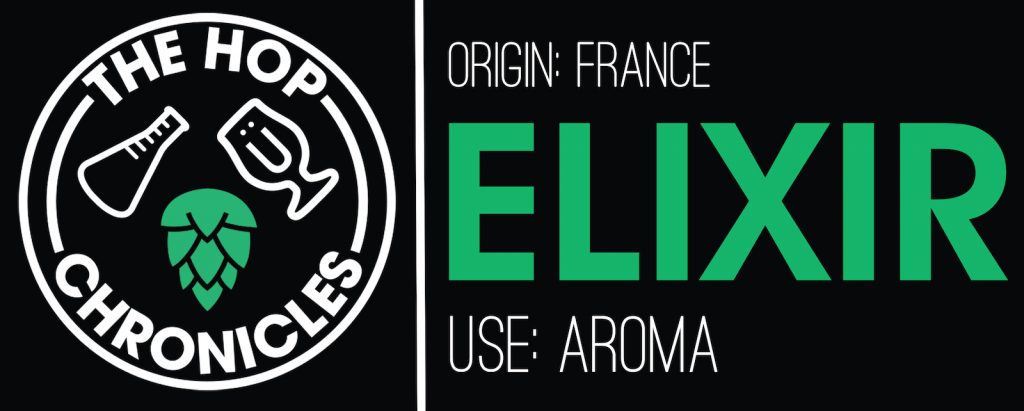

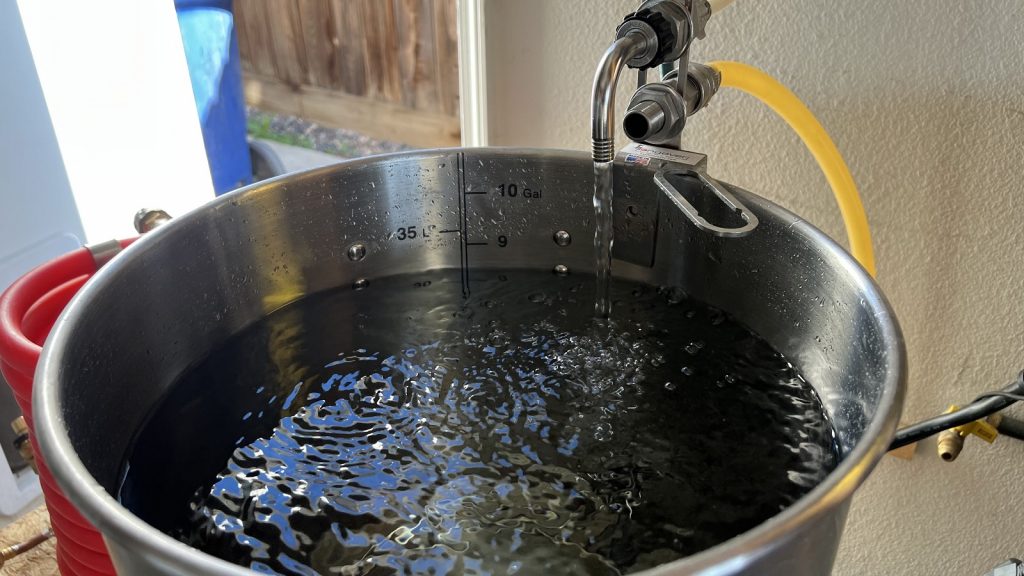
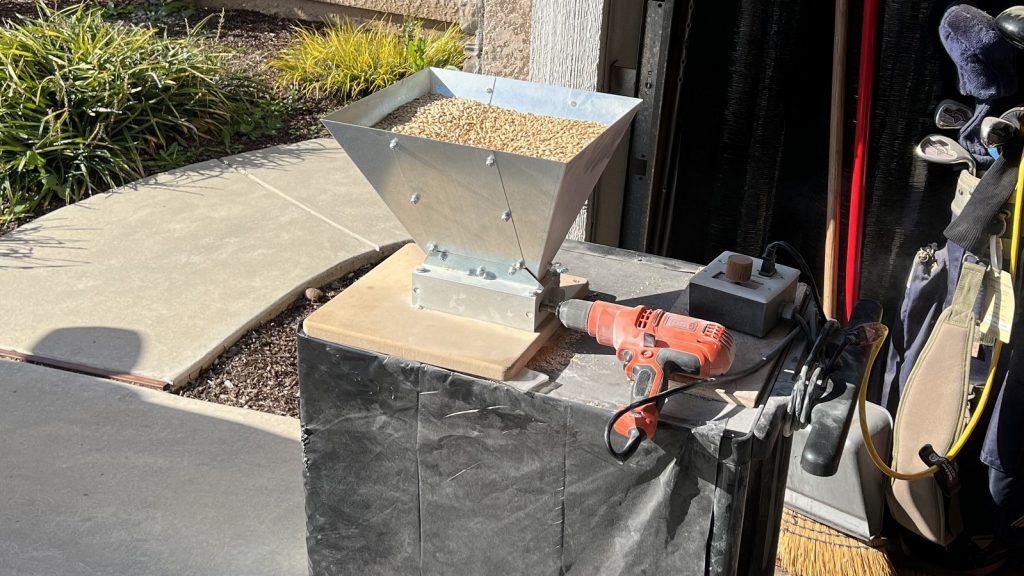
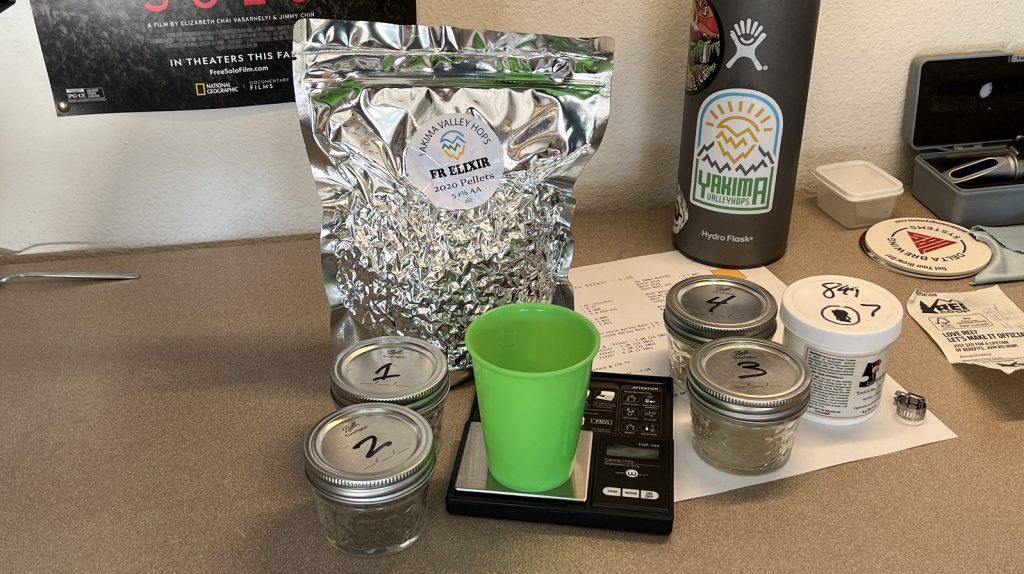
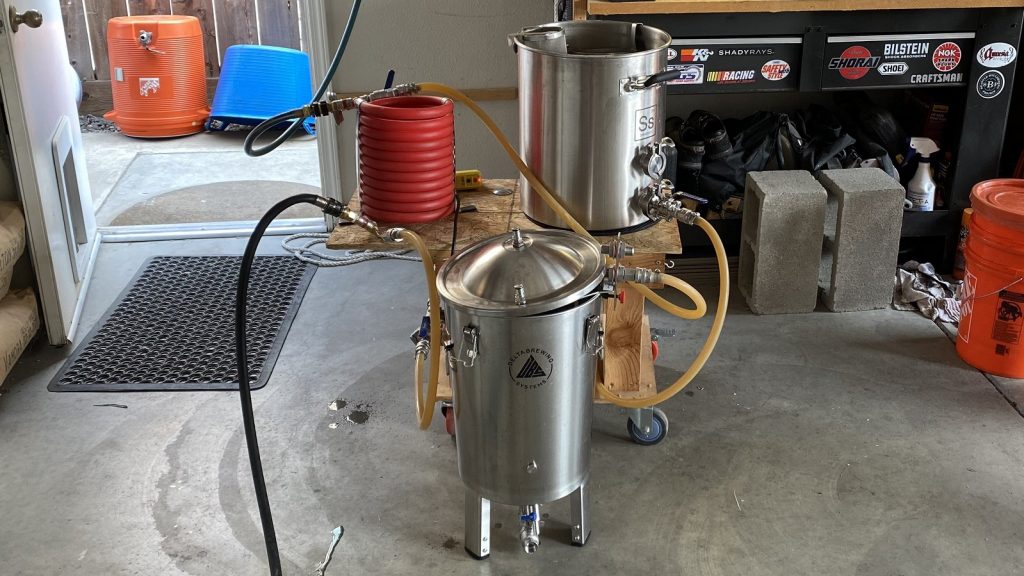

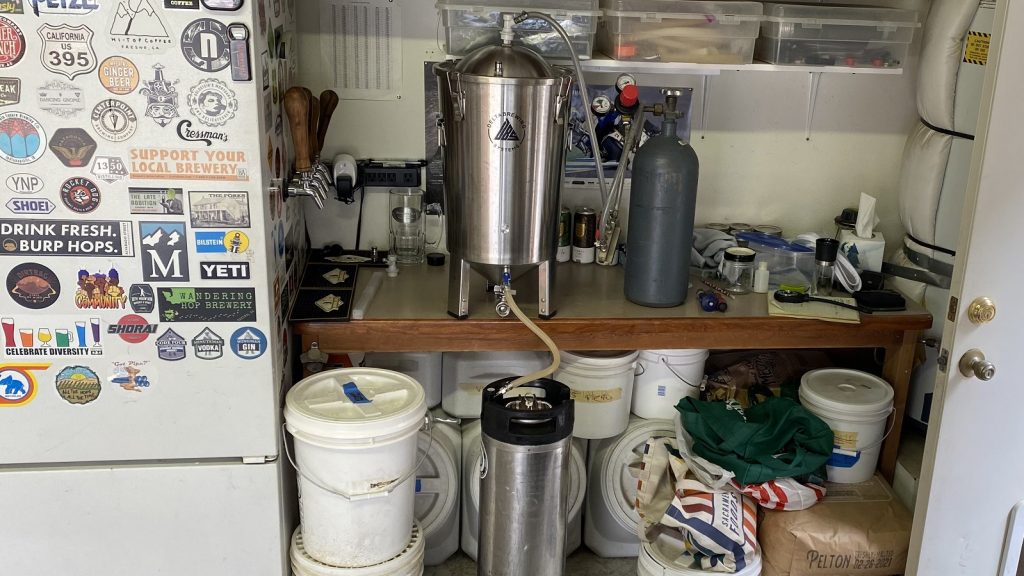
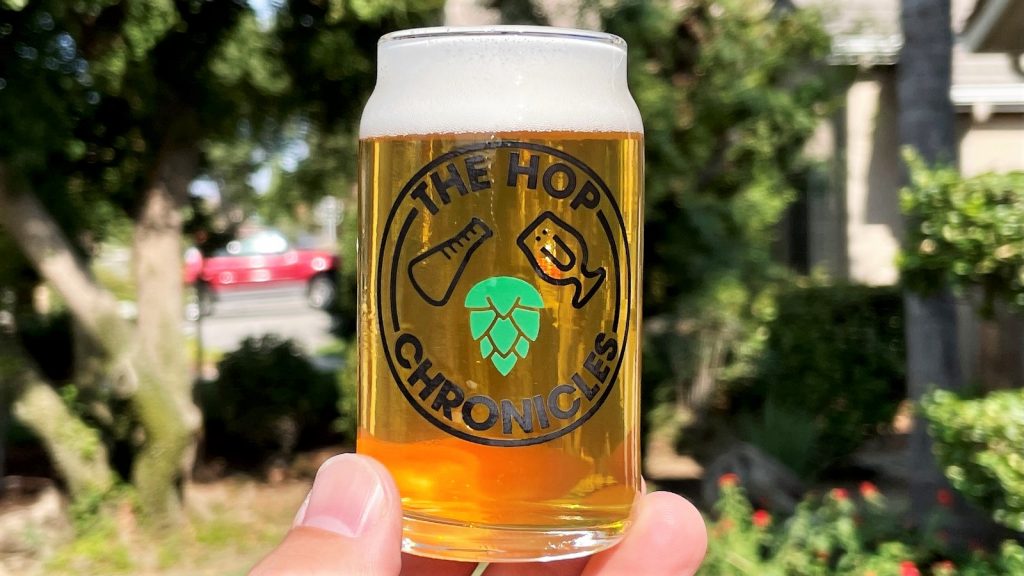

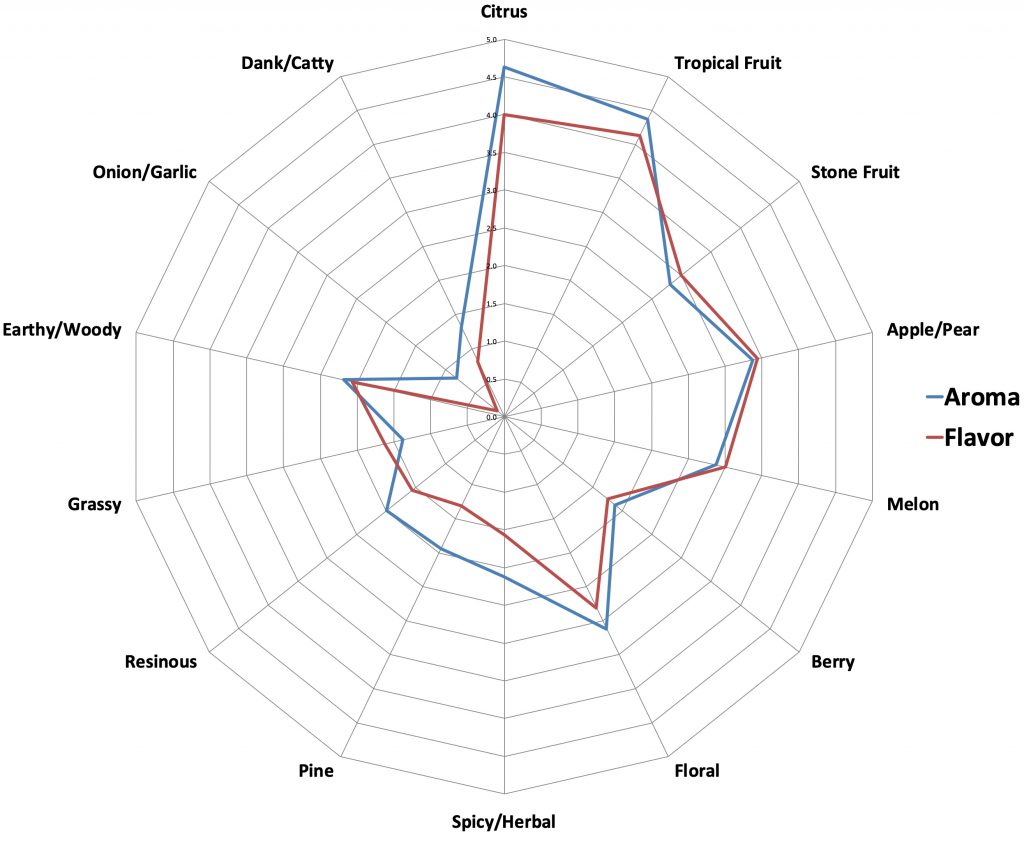
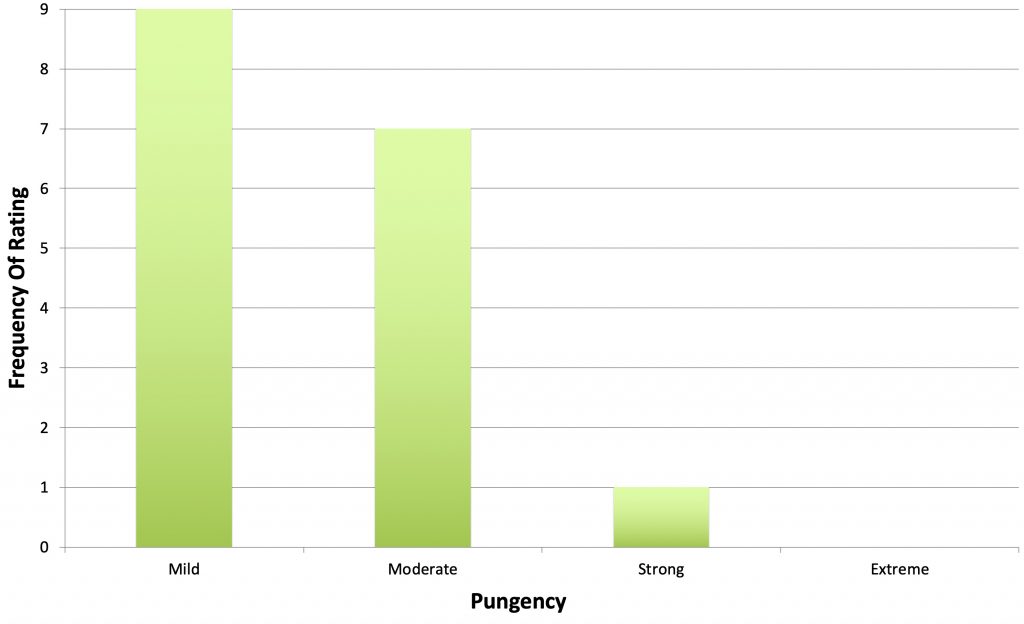
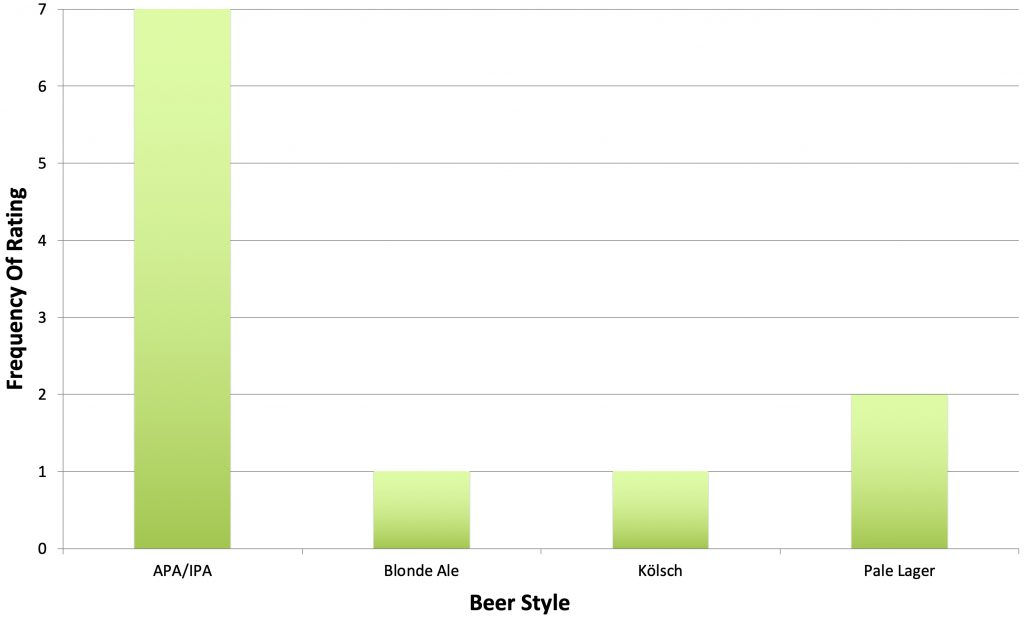
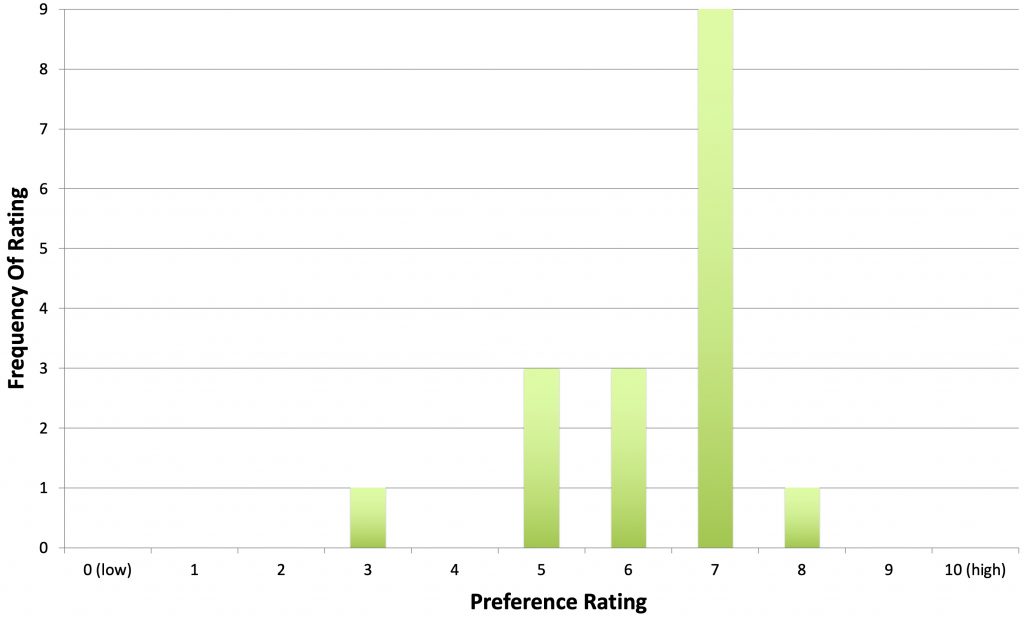








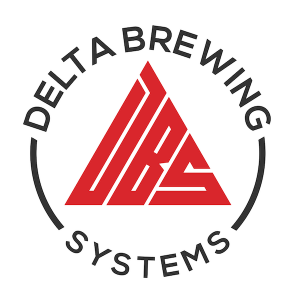


3 thoughts on “The Hop Chronicles | Elixir (2020) Pale Ale”
Interesting that the producers description is:
“Elixir’s primary aroma note is “tropical fruit” with a tangerine and orange character. The complex aroma of Elixir also exhibits floral, citrus and sandalwood notes.”
Which sounds much more like what you and the rest of the tasters experienced.
see
https://cdn.shopify.com/s/files/1/0365/4598/6693/products/HopFrance_HAAS_TechData_Elixir2_1400x.jpg
Elixir is great I’m hoppy lagers and saisons!
This is a great hop for Italian Pilsners!